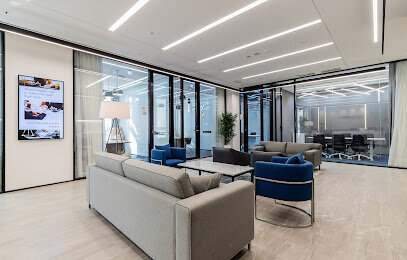Best General Litigation Lawyers in Seoul
Share your needs with us, get contacted by law firms.
Free. Takes 2 min.
List of the best lawyers in Seoul, South Korea
About Litigation Law in Seoul, South Korea:
Litigation refers to the process of resolving disputes in court. In Seoul, South Korea, litigation covers a wide range of legal issues, including civil, criminal, and administrative cases. The court system in Seoul is based on the civil law system, with judges playing a central role in deciding cases. It is important to understand the local laws and procedures when navigating the litigation process in Seoul.
Why You May Need a Lawyer:
There are various situations where you may require legal help in litigation, such as contract disputes, property disputes, labor disputes, personal injury claims, and criminal defense. A lawyer can provide valuable advice, representation in court, and help you navigate the complex legal system in Seoul.
Local Laws Overview:
Key aspects of local laws that are particularly relevant to litigation in Seoul include the Civil Procedure Act, the Criminal Procedure Act, and the Administrative Litigation Act. These laws set out the rules and procedures for bringing cases to court, presenting evidence, and appealing decisions. It is important to have a basic understanding of these laws when seeking legal advice in Seoul.
Frequently Asked Questions:
1. What is the typical timeline for a litigation case in Seoul?
The timeline for a litigation case in Seoul can vary depending on the complexity of the case and the court's schedule. Generally, a case can take several months to several years to resolve.
2. Can I represent myself in court in Seoul?
Yes, you have the right to represent yourself in court in Seoul. However, it is advisable to seek legal representation to ensure your rights are protected and to navigate the legal system effectively.
3. How can I find a reputable lawyer in Seoul for my litigation case?
You can find a reputable lawyer in Seoul by asking for recommendations from friends or family, researching online, or contacting legal referral services. It is important to choose a lawyer with experience in the specific area of law relevant to your case.
4. What are the costs associated with hiring a lawyer for a litigation case in Seoul?
The costs of hiring a lawyer in Seoul can vary depending on the complexity of the case, the lawyer's experience, and the fee structure. It is important to discuss fees and payment arrangements with your lawyer before proceeding with your case.
5. Are there alternative dispute resolution options available in Seoul?
Yes, there are alternative dispute resolution options available in Seoul, such as mediation and arbitration. These can be quicker and more cost-effective ways to resolve disputes compared to litigation in court.
6. Can I appeal a court decision in Seoul?
Yes, you have the right to appeal a court decision in Seoul. The appeal process involves presenting new evidence or arguments to a higher court, which will review the case and make a new decision.
7. What are the key differences between civil, criminal, and administrative litigation in Seoul?
Civil litigation involves disputes between individuals or entities over rights and legal obligations. Criminal litigation involves cases where individuals are charged with crimes. Administrative litigation involves disputes between individuals and government agencies.
8. What evidence is required for a successful litigation case in Seoul?
Successful litigation cases in Seoul require sufficient evidence to prove the facts and legal arguments of the case. This may include documents, witness testimonies, expert opinions, and other forms of evidence.
9. Can a foreigner file a litigation case in Seoul?
Yes, a foreigner can file a litigation case in Seoul. However, there may be additional requirements and procedures for foreigners to follow, such as obtaining a visa or working with a local legal representative.
10. How long do I have to file a litigation case in Seoul?
The statute of limitations for filing a litigation case in Seoul varies depending on the type of case. It is important to consult with a lawyer to determine the deadline for filing your case.
Additional Resources:
For additional resources related to litigation in Seoul, you can contact the Seoul Bar Association, the Korean Bar Association, or the Supreme Court of Korea. These organizations can provide information, legal assistance, and resources to help you with your litigation case.
Next Steps:
If you need legal assistance in litigation in Seoul, it is recommended to consult with a reputable lawyer who has experience in the relevant area of law. Your lawyer can provide advice, representation in court, and help you navigate the legal system effectively. Be sure to gather all the necessary documents and information related to your case before meeting with your lawyer to ensure a successful outcome.
Lawzana helps you find the best lawyers and law firms in Seoul through a curated and pre-screened list of qualified legal professionals. Our platform offers rankings and detailed profiles of attorneys and law firms, allowing you to compare based on practice areas, including General Litigation, experience, and client feedback.
Each profile includes a description of the firm's areas of practice, client reviews, team members and partners, year of establishment, spoken languages, office locations, contact information, social media presence, and any published articles or resources. Most firms on our platform speak English and are experienced in both local and international legal matters.
Get a quote from top-rated law firms in Seoul, South Korea — quickly, securely, and without unnecessary hassle.
Disclaimer:
The information provided on this page is for general informational purposes only and does not constitute legal advice. While we strive to ensure the accuracy and relevance of the content, legal information may change over time, and interpretations of the law can vary. You should always consult with a qualified legal professional for advice specific to your situation.
We disclaim all liability for actions taken or not taken based on the content of this page. If you believe any information is incorrect or outdated, please contact us, and we will review and update it where appropriate.

















